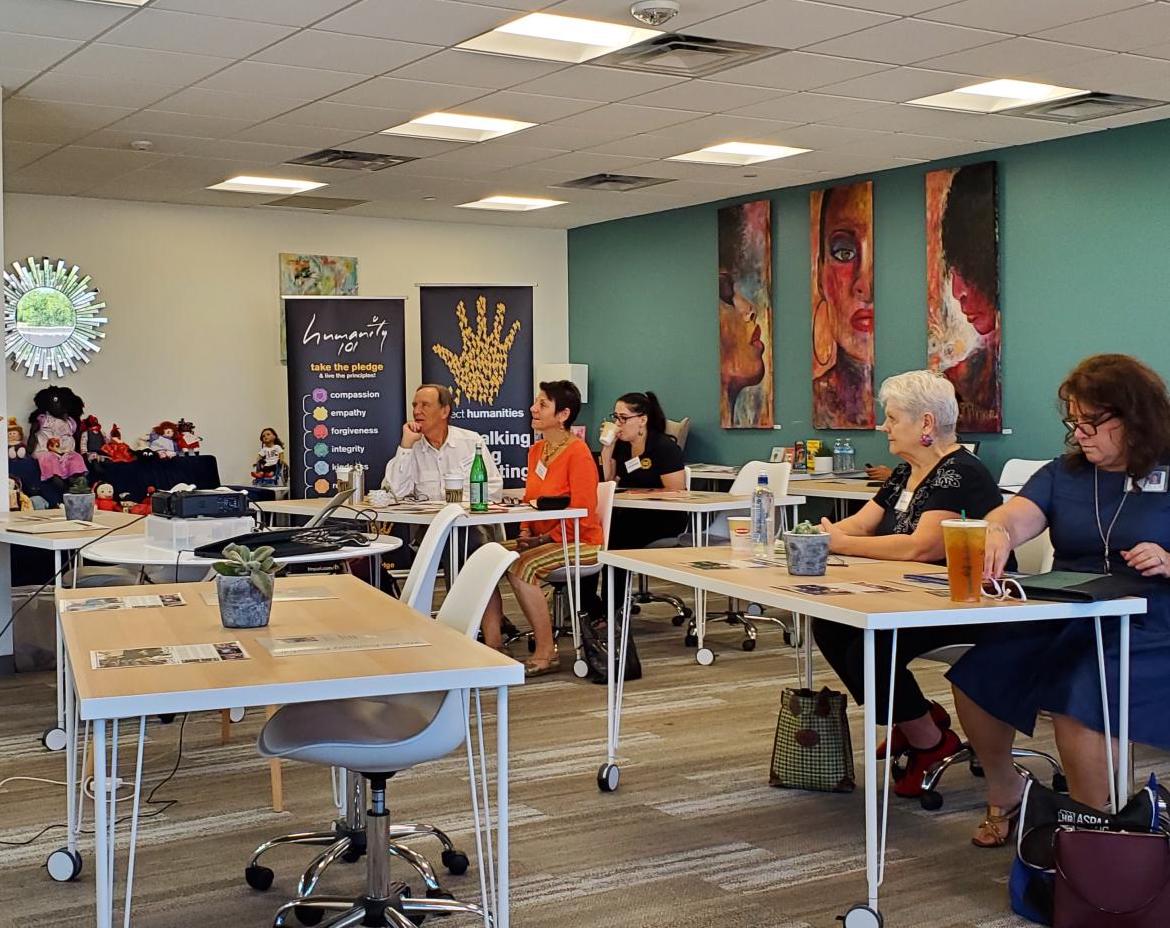Responses to social/ political issues--profiling, voter/ marriage rights, immigration, healthcare, education, and entitlements--are often restricted to individuals’ experiences. Many are unaware of the perils and perks of privilege that inform personal responses and viewpoints. Conversations on important issues through the lens of race, gender, sexuality, class, age, or ability, for instance, often leave individuals and communities unwilling/unable to talk, listen and connect.
Project Humanities hosted 2-hour workshops that explored everyday manifestations of privilege. Workshops across Arizona engaged literature, history, language, performance, art, film, history, and popular culture to demonstrate the everyday complexities of privilege. Facilitated by experts who establish guidelines and appropriate prompts, workshops centered on participants’ vital voices, providing a model for understanding and acknowledging privilege.
These workshops centered participants’ vital voices, providing a model for understanding “difference,” identity politics, and acknowledging privilege. Consistent feedback across all of the workshops evidenced individual empowerment through critical conversation, information, education, and self-reflection.
These workshops evolved into Humanity 101 in the Workplace: Lessons in Privilege and Bias
Privilege Checklists *
* Note: These research tools were not created by Project Humanities.
